Search titles
Displaying results 81 to 88 of 88.
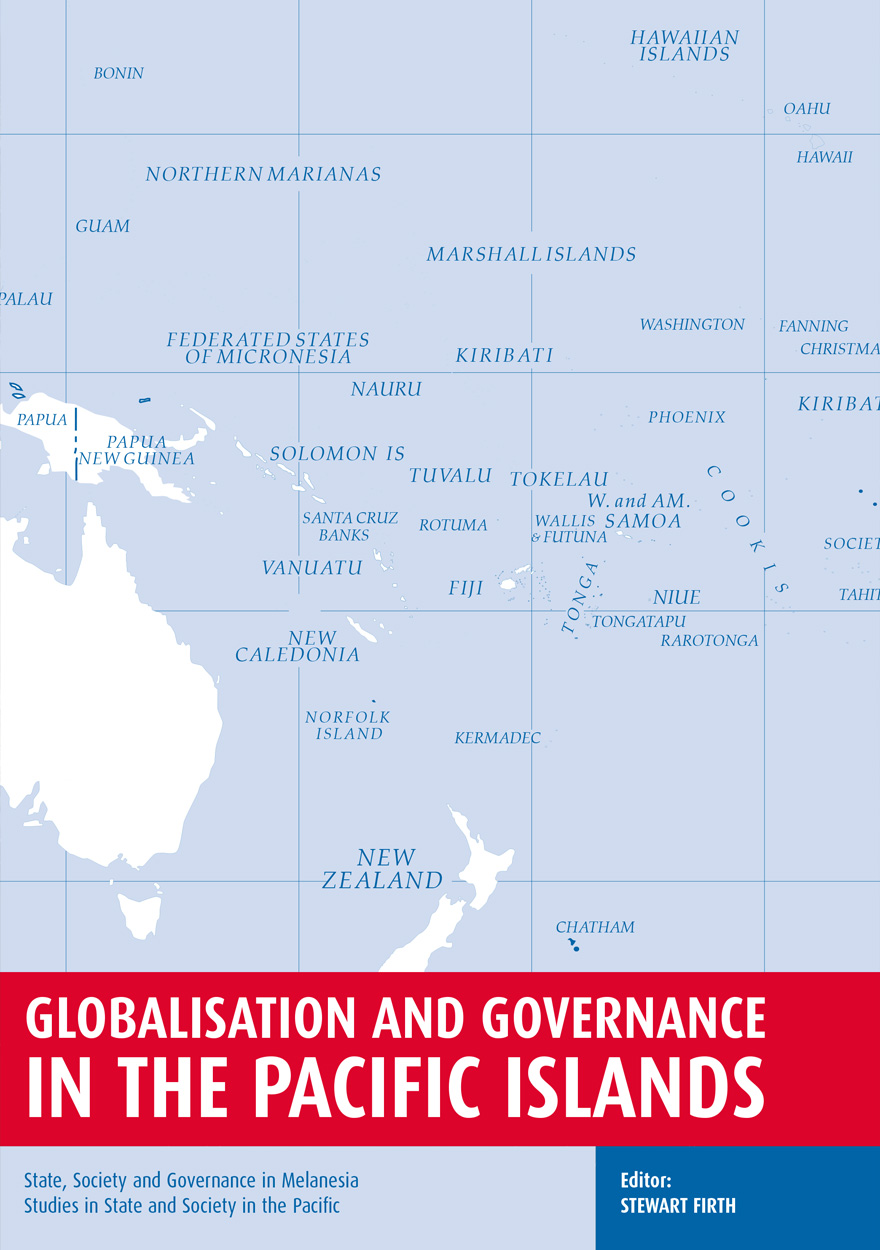
Globalisation and Governance in the Pacific Islands »
State, Society and Governance in Melanesia
Edited by: Stewart Firth
Publication date: December 2006
The Pacific Islands are feeling the effects of globalisation. Free trade in sugar and garments is threatening two of Fiji’s key industries. At the same time other opportunities are emerging. Labour migration is growing in importance, and Pacific governments are calling for more access to Australia’s labour market. Fiji has joined Samoa, Tonga, Tuvalu and Kiribati as a remittance economy, with thousands of its citizens working overseas. Meantime, Papua New Guinea and Solomon Islands grapple with an older kind of globalisation in which overseas companies exploit mineral and forest resources.
The Pacific Islands confront unique problems of governance in this era of globalisation. The modern, democratic state often fits awkwardly with traditional ways of doing politics in that part of the world. Just as often, politicians in the Pacific exploit tradition or invent it to serve modern political purposes.
The contributors to this volume examine Pacific globalisation and governance from a wide range of perspectives. They come from Papua New Guinea, Solomon Islands, Hawai’i, the Federated States of Micronesia, Samoa, Fiji, New Zealand and Jamaica as well as Australia.
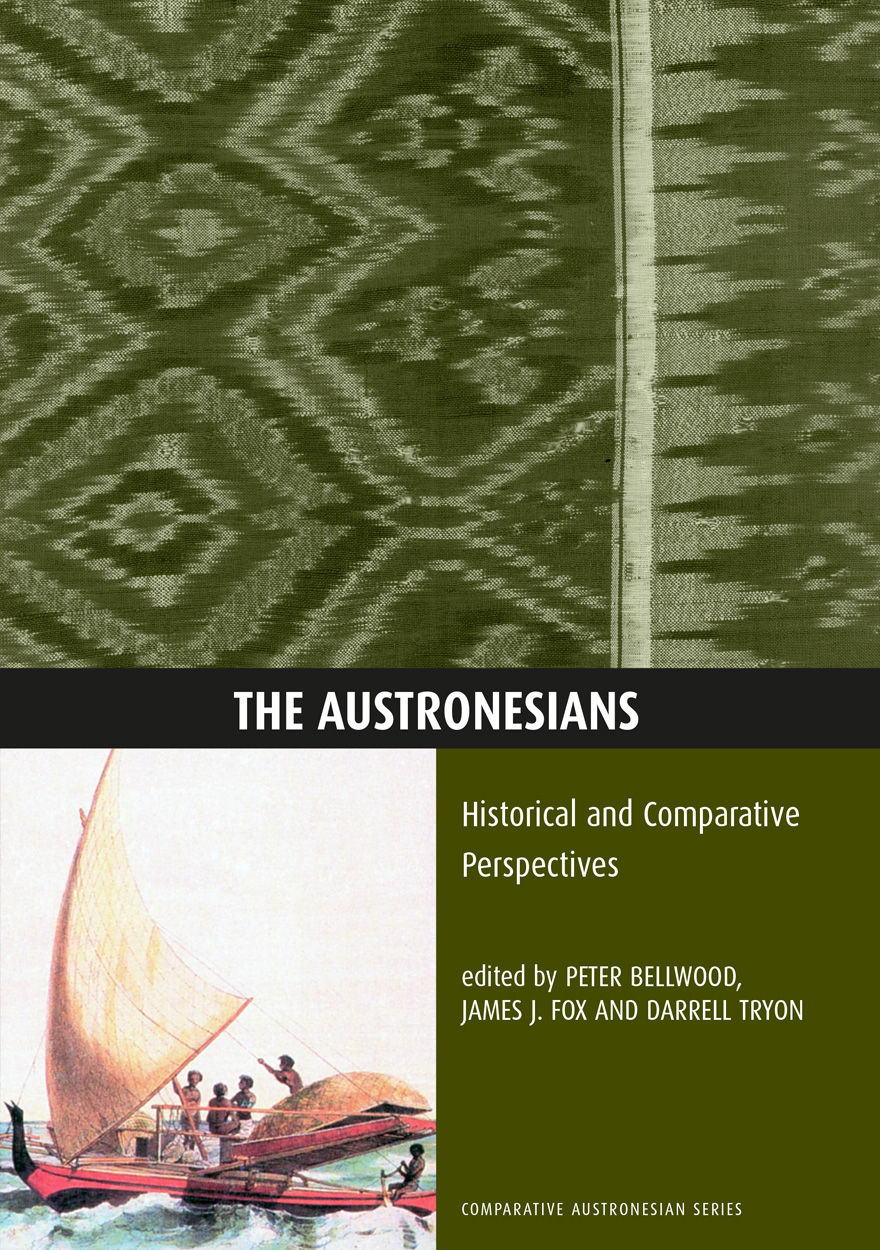
The Austronesians »
Historical and Comparative Perspectives
Publication date: September 2006
The Austronesian-speaking population of the world are estimated to number more than 270 million people, living in a broad swathe around half the globe, from Madagascar to Easter Island and from Taiwan to New Zealand. The seventeen papers in this volume provide a general survey of these diverse populations focusing on their common origins and historical transformations. The papers examine current ideas on the linguistics, prehistory, anthropology and recorded history of the Austronesians. This volume is a publication of the Research School of Pacific and Asian Studies’ Comparative Austronesian Project.
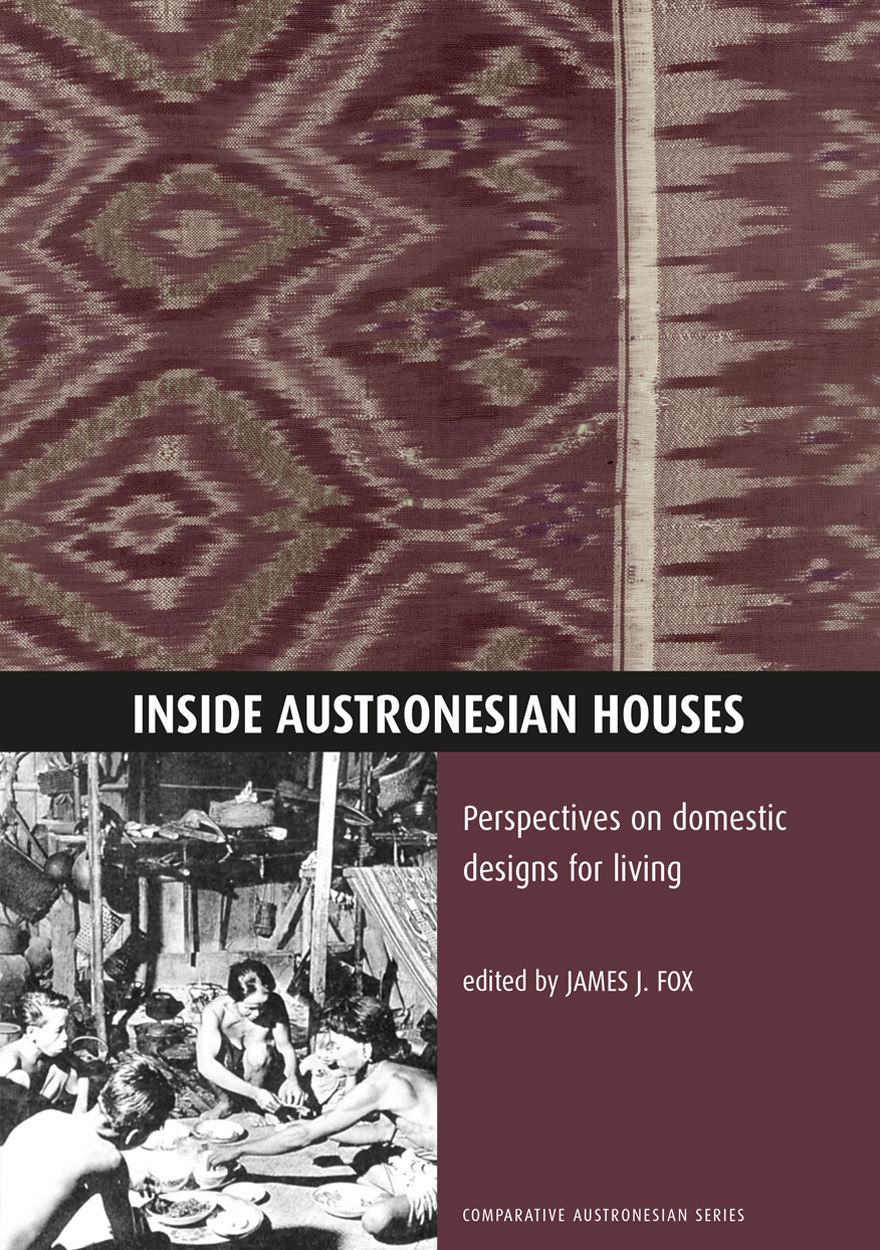
Inside Austronesian Houses »
Perspectives on domestic designs for living
Edited by: James J. Fox
Publication date: September 2006
The eight papers in this volume examine the spatial organization of a variety of Austronesian houses and relate the domestic design of these houses to the social and ritual practices of the specific groups who reside within them. The houses considered in this volume range from longhouses in Borneo to the meeting-houses of the Maori of New Zealand and from the magnificent houses of the Minangkabau of Sumatra to the simpler dwellings of the population of Goodenough Island in Papua New Guinea. Together these papers indicate common features of domestic design from island South-East Asia to Melanesia and the Pacific. This volume is a publication of the Research School of Pacific Studies’ Comparative Austronesian Project.
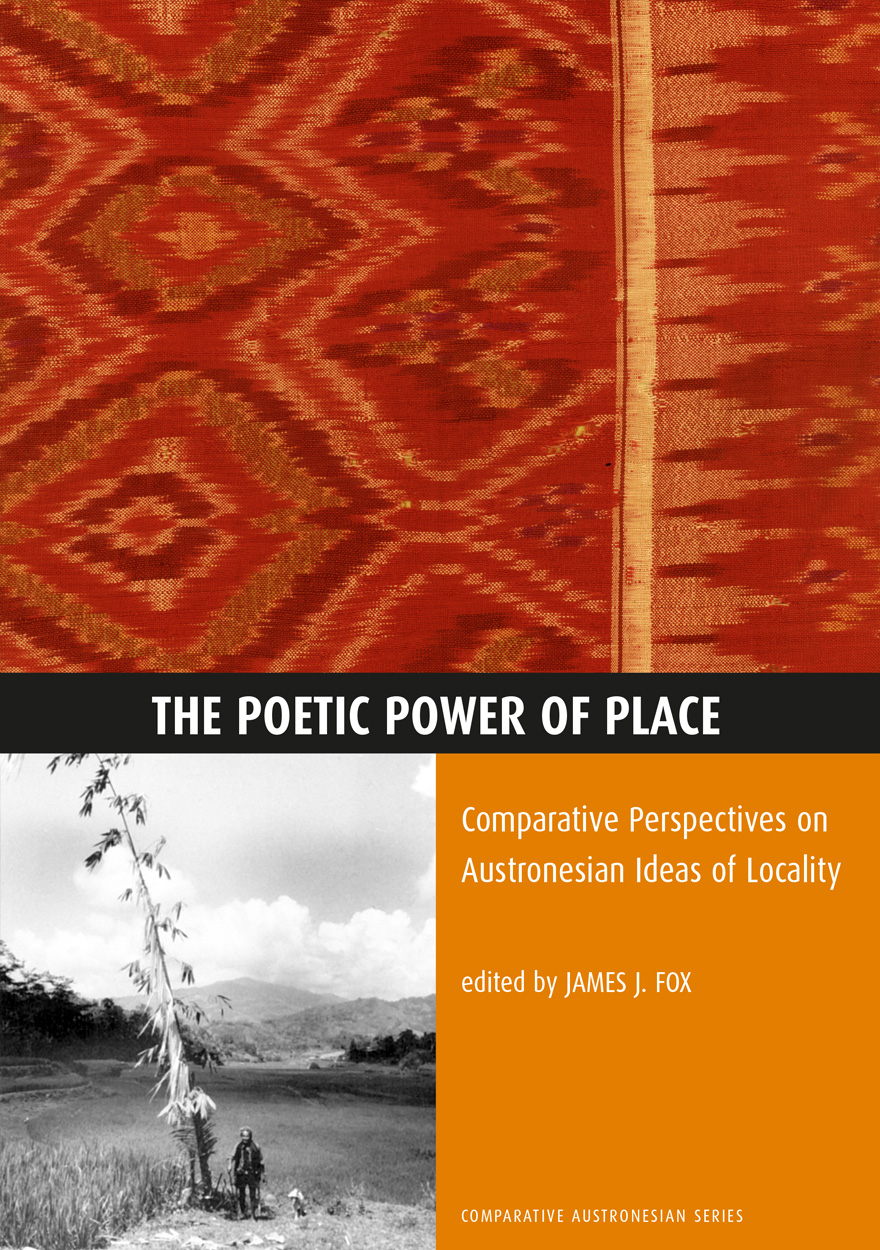
The Poetic Power of Place »
Comparative Perspectives on Austronesian Ideas of Locality
Edited by: James J. Fox
Publication date: September 2006
This collection of papers is the fourth in a series of volumes on the work of the Comparative Austronesian Project. Each paper describes a specific Austronesian locality and offers an ethnographic account of the way in which social knowledge is vested, maintained and transformed in a particular landscape. The intention of the volume is to consider common patterns in the representation of place among Austronesian-speaking populations.
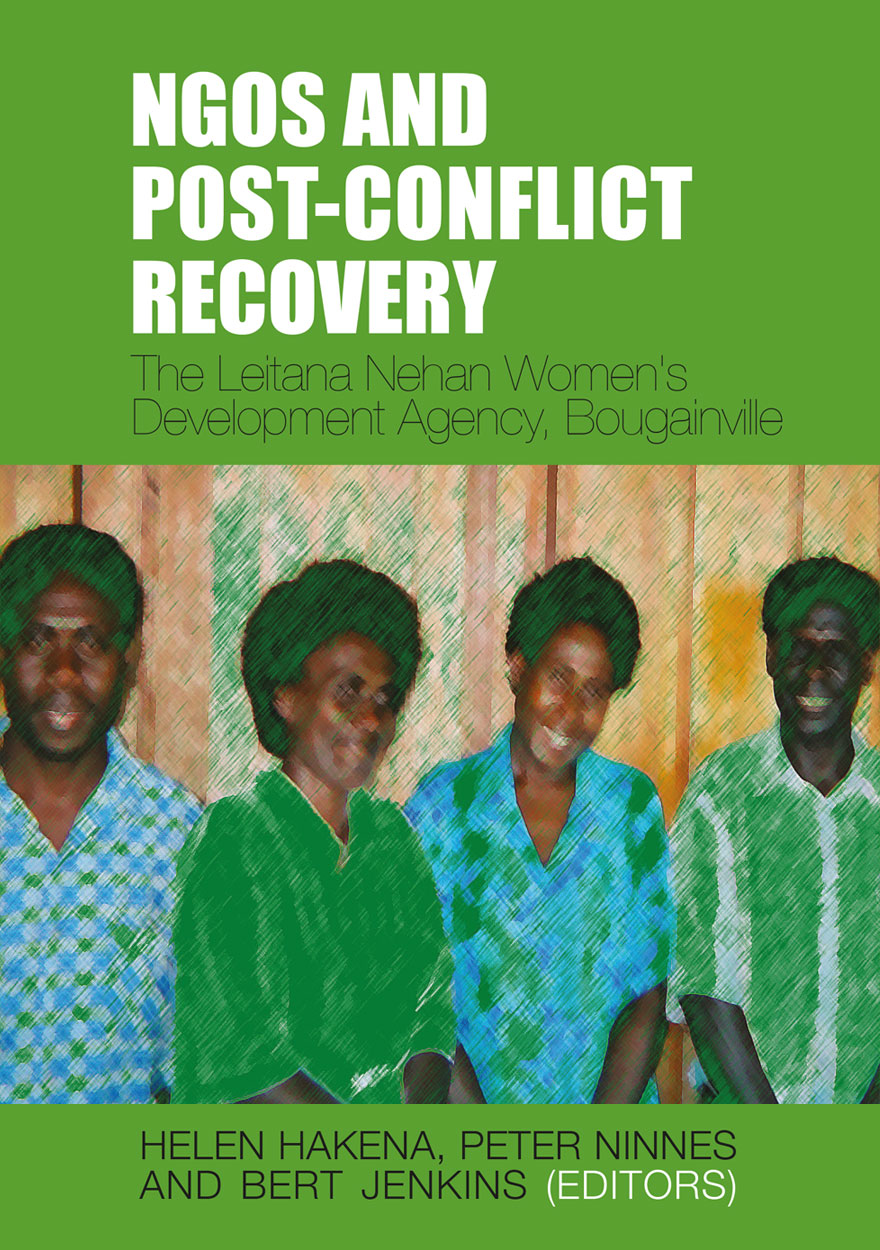
NGOs and Post-Conflict Recovery »
The Leitana Nehan Women’s Development Agency, Bougainville
Edited by: Helen Hakena, Peter Ninnes, Bert Jenkins
Publication date: April 2006
When government services have broken down or when international nongovernment organisations are uninterested or unable to help, grassroots non-government organisations provide important humanitarian, educational and advocacy services. Yet, too often the story of the crucial role played by these organisations in conflict and post-conflict recovery goes unheard.
The Leitana Nehan Women’s Development Agency provides many salutary lessons for grassroots non-government organisations undertaking peacemaking and peace-building work. In the thirteen years of its existence, it has contributed humanitarian assistance, provided education programs on peace, gender issues and community development, and has become a powerful advocate for women’s and children’s rights at all levels of society. Its work has been recognised through the award of a United Nations’ Millennium Peace Price in 2000 and a Pacific Peace Prize in 2004.
This book makes a unique contribution to understanding the role of nongovernment organisations in promoting peace and development and gender issues in the South West Pacific.
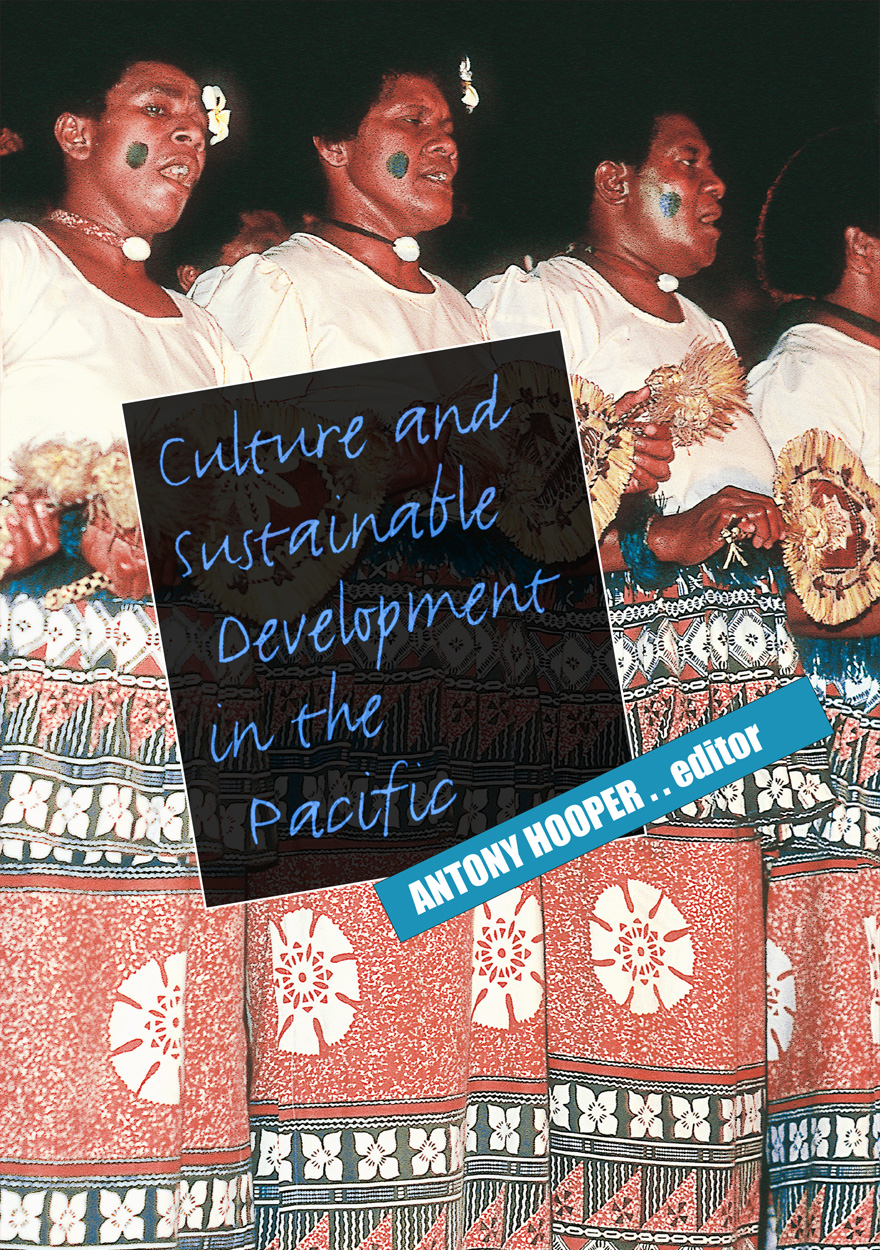
Culture and Sustainable Development in the Pacific »
Edited by: Antony Hooper
Publication date: April 2005
Throughout the South Pacific, notions of ‘culture’ and ‘development’ are very much alive—in political debate, the media, sermons, and endless discussions amongst villagers and the urban élites, even in policy reports.
Often the terms are counterposed, and development along with ‘economic rationality’, ‘good governance’ and ‘progress’ is set against culture or ‘custom’, ‘tradition’ and ‘identity’. The decay of custom and impoverishment of culture are often seen as wrought by development, while failures of development are haunted by the notion that they are due, somehow, to the darker, irrational influences of culture.
The problem is to resolve the contradictions between them so as to achieve the greater good—access to material goods, welfare and amenities, ‘modern life’—without the sacrifice of the ‘traditional’ values and institutions that provide material security and sustain diverse social identities.
Resolution is sought in this book by a number of leading writers from the South Pacific including Langi Kavaliku, Epeli Hau’ofa, Marshall Sahlins, Malama Meleisea, Joeli Veitayaki, and Tarcisius Tara Kabutaulaka. The volume is brought together for UNESCO by Antony Hooper, Professor Emeritus at the University of Auckland. UNESCO experts include Richard Engelhardt, Langi Kavaliku, Russell Marshall, Malama Meleisea, Edna Tait and Mali Voi.

State and Society in Papua New Guinea »
The First Twenty-Five Years
Authored by: R.J. May
Publication date: May 2004
On the eve of Papua New Guinea’s independence in 1975 there were many – both within the country and outside – who predicted political anarchy, with the possibility of an army coup or authoritarian single-party dominance, and economic collapse. Such fears appeared to have been justified when in 1975 both the North Solomons (Bougainville) and Papua unilaterally declared their independence. In fact, however, PNG achieved a smooth transition, and in its first decade as a new state enjoyed a high degree of political and economic progress. It remains one of the few post-colonial states that has maintained an unbroken record of democratic government.
Nevertheless, from around the mid-1980s a number of problems have become apparent, including: a decline in government capability; increasing problems of urban and rural lawlessness; poor economic management, with growing evidence of nepotism and corruption; environmental degradation associated with mining and logging, and increasing pressure on land; and, from 1988, a rebellion on Bougainville.
This volume brings together a number of papers written by the author between 1971 and 2001 which address issues of political and economic development and social change in Papua New Guinea.
Dr R.J. May is a senior fellow in the Department of Political and Social Change, Research School of Pacific and Asian Studies at The Australian National University. He was formerly a senior economist with the Reserve Bank of Australia and later foundation director of IASER in PNG (now the National Research Institute). In 1976 he was awarded the Independence Medal for his services to banking and research in PNG.

The Military and Democracy in Asia and the Pacific »
Edited by: R.J. May, Viberto Selochan
Publication date: March 2004
In The Military and Democracy in Asia and the Pacific, a number of prominent regional specialists take a fresh look at the military’s changing role in selected countries of Asia and the Pacific, particularly with regard to the countries’ performance against criteria of democratic government.
Indonesia, Thailand, the Philippines, Burma, Pakistan, Bangladesh, South Korea, Fiji and Papua New Guinea all fall under the spotlight as the authors examine the role which the military has played in bringing about changes of political regime, and in resisting pressures for change.
Under the auspices of The Australian National University’s Department of Political and Social Change, Research School of Pacific and Asian Studies, and within the context of the Regime Change and Regime Maintenance in Asia and the Pacific project, the following contributors compiled The Military and Democracy in Asia and the Pacific: Emajuddin Ahamed, Suchit Bunbongkarn, Stephanie Lawson, R. J. May, Hasan-Askari Rizvi, Viberto Selochan, Josef Silverstein, Michael Vatikiotis and Yung Myung Kim. The Military and Democracy in Asia and the Pacific provides a sequel to Viberto Selochan’s earlier collection, The Military, the State, and Development in Asia and the Pacific (1991).



